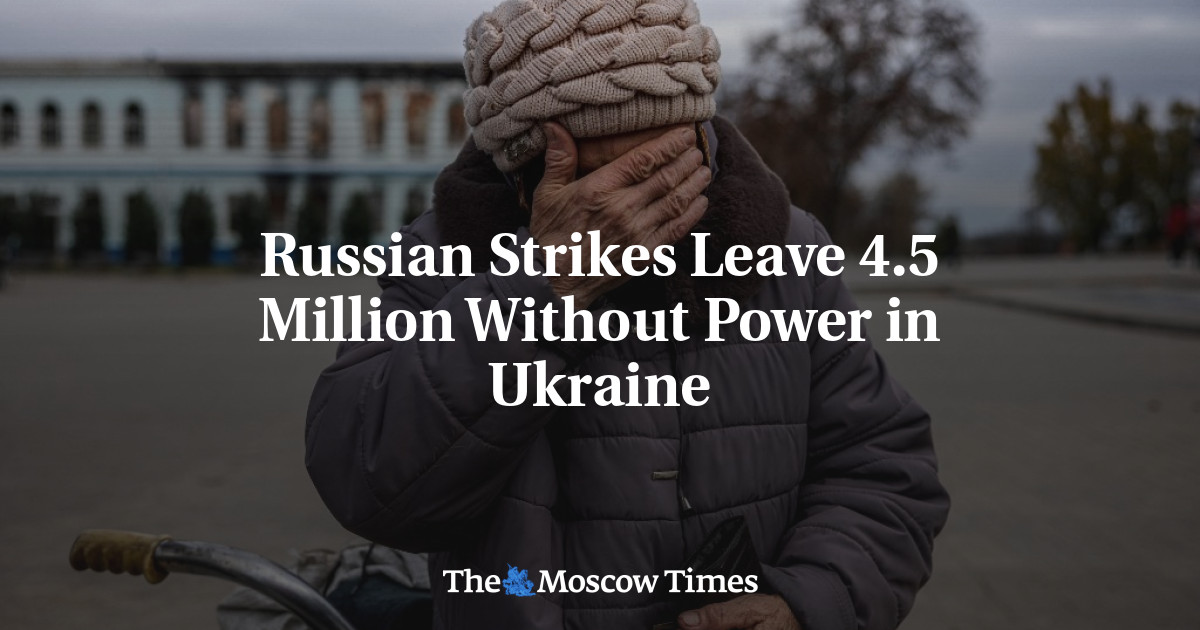
Ukrainian President Volodymyr Zelensky accused Russia of “energy terrorism” on Thursday night, after renewed strikes on the country’s energy infrastructure left some 4.5 million people without power.
“Tonight, about 4.5 million consumers have been temporarily disconnected from energy consumption,” Zelensky said in his daily evening address.
“The very fact that Russia is resorting to energy terrorism shows the weakness of our enemy. They cannot beat Ukraine on the battlefield, so they try to break our people this way,” Zelensky said.
For weeks Russian forces have rained missiles and explosive drones onto Ukrainian cities, apparently in the hope of undermining public morale and support for the Kyiv government’s execution of the war as the winter takes its grip.
Russian strikes over the past month have destroyed around a third of the country’s power stations. The government has urged Ukrainians to conserve electricity as much as possible.
Ahead of Thursday’s meeting of the Group of Seven industrialized powers, German Foreign Minister Annalena Baerbock said the G7 would help Ukraine with items including generators and heaters to survive the winter.
As fighting focused increasingly on Russia-held Kherson, Kyiv on Thursday also condemned the “mass forced relocation” of its citizens living in regions occupied by Russia.
“The Russian occupation administration began mass forced relocation of residents of the left-bank of the Kherson region… to the temporarily occupied Crimea or to Russia,” the Ukrainian Foreign Ministry said in a statement.
“Similar deportations are also being carried out by Russia in the Zaporizhzhia, Luhansk and Donetsk regions, as well as in Crimea.”
Moscow-installed Kherson governor Vladimir Saldo said he was moving people further into the region or to Russia because of the risks of a “massive missile attack.”
Moscow-installed authorities in Kherson said last week that 70,000 civilians had left their homes on the right bank of the Dnipro.
Meanwhile, the International Atomic Energy Agency said its inspectors had found no indications of any “undeclared nuclear activities” at three locations they had inspected in Ukraine.
The inspectors visited the sites at Kyiv’s request to refute Moscow’s allegations that Ukraine was preparing to use dirty bombs against Russian troops.
Kyiv has raised fears Moscow itself might resort to using a dirty bomb in a “false flag” attack.
Zelensky described the IAEA’s conclusion as “obvious.”
“We have given them full freedom of action at the relevant facilities, and we have clear and irrefutable evidence that no one in Ukraine has created or is creating any ‘dirty bombs.'”